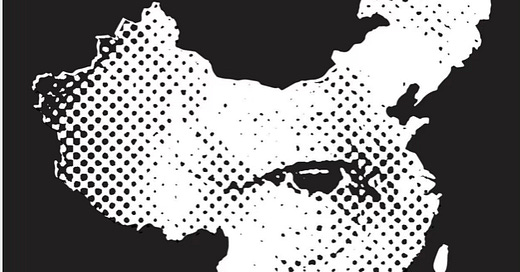Minxin Pei | The Sentinel State: Surveillance and the Survival of Dictatorship in China
The Sentinel State
Surveillance and the Survival of Dictatorship in China
by Minxin Pei
Harvard University Press,Feb,2024
Countering recent hype around technology, a leading expert argues that the endurance of dictatorship in China owes less to facial recognition AI and GPS tracking than to the human resources of the Leninist surveillance state.
For decades China watchers argued that economic liberalization and increasing prosperity would bring democracy to the world’s most populous country. Instead, the Communist Party’s grip on power has only strengthened. Why? The answer, Minxin Pei argues, lies in the effectiveness of the Chinese surveillance state. And the source of that effectiveness is not just advanced technology like facial recognition AI and mobile phone tracking. These are important, but what matters more is China’s vast, labor-intensive infrastructure of domestic spying.
Central government data on Chinese surveillance is confidential, so Pei turned to local reports, police gazettes, leaked documents, and interviews with exiled dissidents to provide a detailed look at the evolution, organization, and tactics of the surveillance state. Following the 1989 Tiananmen uprising, the Chinese Communist Party invested immense resources in a coercive apparatus operated by a relatively small number of secret police officers capable of mobilizing millions of citizen informants to spy on those suspected of disloyalty. The CCP’s Leninist bureaucratic structure—whereby officials and party activists penetrate every sector of society and the economy, from universities and village committees to delivery companies, telecommunication firms, and Tibetan monasteries—ensures that Beijing’s eyes and ears are truly everywhere.
While today’s system is far more robust than that of years past, it is modeled after mass surveillance implemented under Mao Zedong and Chinese emperors centuries ago. Rigorously empirical and rich in historical insight, The Sentinel Stateis a singular contribution to our knowledge about coercion in the Chinese state and, more generally, the survival strategies of authoritarian regimes.
Praise
In his fascinating, meticulously researched ‘The Sentinel State,’ Pei focuses on how the Chinese government upgraded its surveillance capabilities to prevent another social movement like the one that inspired the 1989 Tiananmen Square uprising.
—Annalee Newitz, New York Times Book Review
Mr. Pei’s impressive research includes his examination of hundreds of official and leaked government documents as well as his interviews with dissidents who offer accounts of the surveillance they have been subjected to…[his] chronicle ranges across recent Chinese history — from Mao’s China to the post Tiananmen Square period to the increasingly oppressive watchfulness of Xi Jinping’s regime today.
—L. Gordon Crovitz, Wall Street Journal
An authoritative study of China’s surveillance system and its ability to strangle any possible dissent…Pei reveals the vast machinery of surveillance and repression in China, fueled by leaders’ fear, distrust, and paranoia.
—Kirkus Reviews (starred review)
Pei ably untangles and demystifies the Chinese surveillance system: for all its obscure and sinister aura, he paints it as the work of harried bureaucrats who struggle with glitchy equipment and unproductive employees…It adds up to a clear-eyed account of China’s surveillance crusade.
—Publishers Weekly
An instant classic, offering a peerless and encompassing explanation for a great puzzle of the twenty-first century: How did China’s autocratic regime outlast its peers? Through painstaking research, Minxin Pei has reverse-engineered the hidden system of preventive repression, exposing a world that is essential to understanding China’s past and, indeed, its future.
—Evan Osnos, author of the National Book Award–winning Wildland: The Making of America’s Fury
A brilliantly researched and eye-opening masterpiece on modern China’s subtle power dynamics. Shining a light on the masterful strategy of ‘preventive repression,’ Pei offers a riveting exploration of China’s covert surveillance mechanisms.
—Yuhua Wang, author of The Rise and Fall of Imperial China: The Social Origins of State Development
A timely, important book on a subject that has received little attention in Western literature. Pei offers both an illuminating analysis of the surveillance state’s historical evolution and a broad overview of its operations across different sectors in contemporary China. Theoretically informed and empirically rich, this is a welcome contribution.
—Lynette Ong, author of Outsourcing Repression: Everyday State Power in Contemporary China
China’s development of high-tech surveillance is crucial to understanding Beijing’s domestic aims and international goals, yet it is still poorly understood. Pei brings together sharp and cogent analysis with deep research to illuminate one of the most important issues of today.
—Rana Mitter, author of China’s Good War: How World War II Is Shaping a New Nationalism
An incisive analysis of a remarkably durable system of state power. Pei argues that China’s already formidable apparatus of political control, augmented with new resources and cutting-edge technologies, has become the most effective surveillance state in history.
—Andrew G. Walder, author of Agents of Disorder: Inside China’s Cultural Revolution
Author
Minxin Pei is the author of several books on Chinese domestic politics, including China’s Crony Capitalism: The Dynamics of Regime Decay and China’s Trapped Transition: The Limits of Developmental Autocracy. He is the Tom and Margot Pritzker ’72 Professor of Government and George R. Roberts Fellow at Claremont McKenna College.




